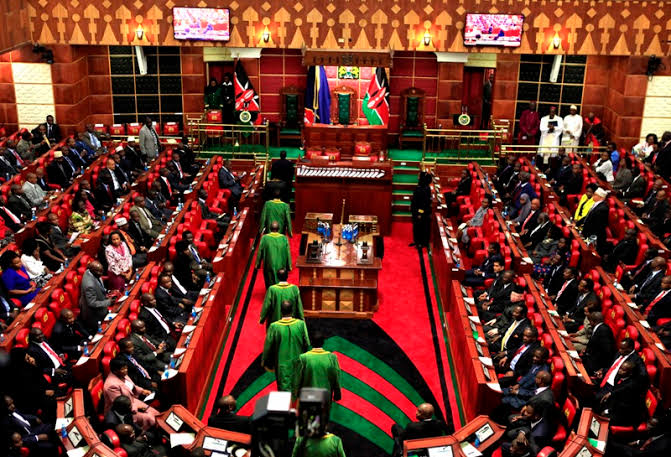By Dennis Wendo.
NAIROBI,Kenya, Feb, 4 -Constitution of Kenya (Amendment) Act No. 12 of 1991: repealed Section 2A of the Constitution thereby restoring multiparty politics that had been evasive since independence.
Constitution of Kenya (Amendment) Act No. 10 of 1997: introduced Section 1A; reinforcing multiparty democracy and also amended Sections 7, 33, 41, 42A, 82 and 84.
The constitutional amendment processes in Kenya have been gradual and remain to provide a rich history of reference to the then movers and opponents of the legislative pieces to date.
One of the key role(s) for the members of the national assembly and senate; is to enact legislations, deliberate on and resolve issues of concern to the people they represent. This role should be exercised with the interest of Kenyans at heart, not with bipartisan approach and self-gains in the horizons. “An injury anywhere is an injury everywhere” and it takes “one inspirational leader to bring or initiate the real desired change(s)”
The recent signing of the enacted Political Parties (Amendment) Bill of 2021 into law, by His Excellency President Uhuru Kenyatta; is a right direction geared towards sanitizing politics in Kenya and the oversighting institutions. His tenure will be notably remembered for this bold move.
It is critical to refresh ourselves on the basic operational structures; for parties in Kenya since 2011, when their governance and management shifted from the Registrar of Societies to the Registrar of Political Parties with the enactment of the Political Parties Act, 2011. The Act gave birth to a legal framework for registration, regulation and funding of parties in Kenya. It further established the Office of the Registrar of Political Parties, responsible for overseeing, implementing and enforcing the law.
Despite the framework, in correlation with other IEBC election laws, political parties and politicians by and large have remained indefensible, impervious to the rule of law and have continued to flaunt elections regulations at free will.
This is retrogressive; an abuse to the sovereignty of the people and the mandated offices tasked to oversight and enforce laws.
Many Kenyans have viewed the office of the registrar of political parties as “toothless” with inability to manage political parties and politicians across the board.
As a process The Political Parties Act 2011, focused at addressing the inherent gaps in the 2007 Act. The new law amends the Political Parties Act of 2011 by introducing the concept of coalition political parties, outlining functions of political parties as well as changing the criteria of assessing the Political Parties Fund.
The law also empowers the Registrar of Political Parties to certify political party membership lists and nomination rules among other transformative provisions aimed at strengthening management of political parties and enhancing democracy.
Let us not criticize the new law in totality, rather appreciate the positives bound to be gained moving forward. Let us focus on nurturing a strong working and reporting foundation between political parties, candidates and the commission, guided by law. Let us support ORPP and IEBC to ensure enhanced professionalism, ethics, integrity and an enabling environment with trust between the players for an optimum service delivery.
The efforts so far initiated by ORPP in embracing ICT infrastructure in managing political parties membership databases deserves credit, though more civic education for political parties and their supporters; still needed on the use of the management system now on the e-citizen platform.
The political class and more importantly the youthful legislators should be the mirrors and symbol of unity, cohesion and progressive change devoid of tribe, religion, race and region and champion for laws that mean well for all. Let them be the guardians of progressive legislations and shun the punitive laws.
Kenyans want to see Political parties with formal structures actively participating in strengthening “themselves” through grassroots’ organization and recruitment, civic education on party manifestos, constitutions and the general election rules.
Accountability and transparency remains paramount in utilizing the political party’s exchequer fund and monthly membership subscriptions. Political parties should be held responsible for records and audit trails on how they utilize the funds. The methodology of allocating these funds has been a bone of contention as well the formulae of sharing the same among parties and coalitions; the new law seeks to address these concerns and provide a fair level playing ground in addressing perennial problems in the affairs of political parties in Kenya.
Dennis Wendo is the Founder- Integrated Development Network.
Email: dambehi@gmail.com
Want to send us a story? Contact Shahidi News Tel: +254115512797 (Mobile & WhatsApp)


